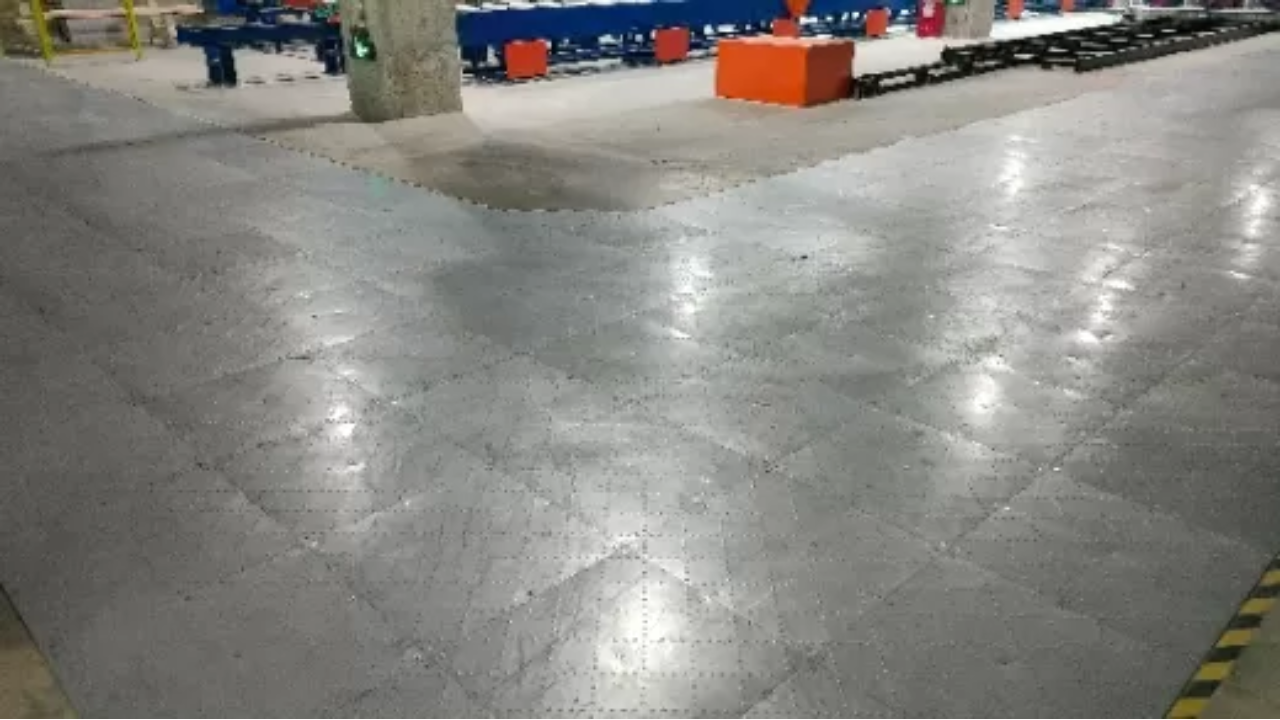The longevity and effectiveness of essential components such as flooring determine how businesses can achieve high ROI in their industrial settings. Applying steel flooring in industries provides a viable approach for creating durable and effective surfaces, allowing organizations to maximize the value of their capital investments.
Understanding the Importance of Industrial Flooring for ROI
Operational efficiency relies heavily on industrial flooring. Selecting the proper flooring can greatly elevate productivity and decrease downtime and hazards. Sturdy flooring leads to economic benefits through fewer repairs and replacements. Steel flooring presents itself as a wise choice for durable flooring in the long run. It offers strength while ensuring safety and requiring little upkeep for profitability.
The Lifespan and Durability of Industrial Steel Flooring
Steel flooring performs incredibly well when subjected to heavy weights. Unlike standard materials, steel can bear the weight of heavy equipment and large numbers of people without losing its integrity. The robustness of steel flooring allows it to endure impacts better than concrete or tiles, so it breaks or cracks less. Steel flooring can maintain its strength effortlessly over time. This flooring's ability to survive decades hinges on proper setup.
Reduced Maintenance Costs for Better ROI
One key benefit of steel flooring is that it can cut down on expenses for repairs and replacements. Conventional flooring typically demands regular upkeep, which can result in unseen costs. The sturdy construction of heavy industrial steel flooring allows it to endure usage and limits the requirement for maintenance. The simplicity of cleaning and upkeep on industrial steel floors aids in their economic sustainability in the long run. Regular cleaning ensures hygiene and limits the requirement for extensive cleaning routines. The ever-increasing cost savings due to decreased upkeep position steel as an advantageous alternative to regular flooring.
Enhancing Workplace Efficiency and Productivity
Machinery and equipment run more efficiently on steel floors in manufacturing facilities. This smooth floor enables easy movement of materials and improves efficiency and output. Steel flooring's anti-slip features minimise safety risks in the workplace. Preventing hazards is essential in all industrial facilities, and steel floors provide a reliable surface for work. A smoother surface optimises movement and supports effective progress in tasks.
Types of Industrial Steel Flooring and Their Benefits
Identifying the best steel flooring option can strengthen your investment. Here are three options to consider:
- Stainless Steel 304: This option is widely regarded for its resistance to corrosion and long-lasting impact resistance. It suits applications that face moisture or chemicals. The longevity of stainless steel flooring and its low maintenance fees make it an astute purchase.
- Galvanized Steel: Galvanized steel stands out as a top option when affordability is key. It is simple to handle and sustains for extended periods. This flooring style offers an ideal equilibrium of value and utility, enabling you to achieve the best return on your investment.
- Carbon Steel: Individuals with a restricted budget can benefit from the durable nature of carbon steel flooring at a lower cost. Such a solution is an effective option for establishments seeking lasting flooring without significant outlay. Excellent structural stability characterises carbon steel, which makes it appropriate for a range of industrial settings.
Conclusion
Committing to durable industrial steel flooring serves as an essential move for boosting your profitability. The exceptional toughness and low upkeep requirements, along with improved safety aspects, provide unmatched lasting benefits for industrial environments. Selecting the appropriate steel flooring will guarantee that your industrial area functions effectively and securely. Commit your resources today to gain lasting rewards from your investment.


